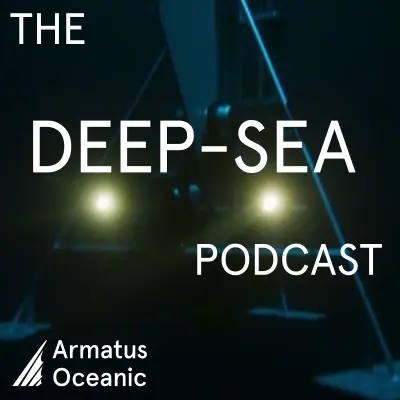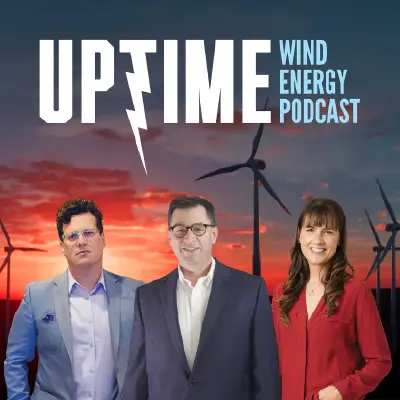Podcasts about Earth Sciences
Episodes about Earth Sciences

Send us a text🔥 Is another heat wave on the horizon? As we cruise into mid-July, temps are climbing — and we’re talking about the hottest temperature ever recorded in July! 🌡️🌊 The tides are shifting just in time to unlock prime beach days, and the ocean is finally starting to warm up. ☀️ But as the sun sets a little earlier each night, daylight is slowly slipping away…💧 With all the recent rain, is the drought still a concern? We’ve got the latest status — plus your full weather preview for July 13–20, 2025.🎙️ It’s all coming up next on Episode #203 of Obsessed With the Weather!Support the show

Jul 10, 2025
#337 Breaking Barriers to STEM with Lightyear Foundation – Engineering Matters Awards winners episode
Engineering Matters ❭
In this episode, we spotlight the remarkable work of the Lightyear Foundation, the winner of the Engineering Matters Awards 2025 Gold Champion for Diversity and Inclusion. The foundation is the only UK charity dedicated to engaging disabled and neurodivergent young people with STEM. Chief Executive Jeff Banks and Senior Programme Manager Emma Zeale explain how...
The post #337 Breaking Barriers to STEM with Lightyear Foundation – Engineering Matters Awards winners episode first appeared on Engineering Matters.

Jul 07, 2025
Beyond the Label: Unveiling the Pesticide Industry with Chuck Benbrook Ep. 64
AcresUSA: Tractor Time ❭
Join host Taylor Henry from Acres U.S.A. as he interviews Chuck Benbrook in a captivating episode of The Acres U.S.A. podcast. Discover Chuck's fascinating journey from a childhood playing in his grandmother's flowerbed to becoming a pivotal figure in agricultural economics and pesticide regulation. The discussion delves into Chuck's experiences in British Columbia's remote areas, his challenges and achievements in ranching, and his significant contributions to understanding the impact of pesticides, particularly glyphosate, on human health and agriculture. This episode also touches on Chuck's involvement in high-profile litigation against large chemical companies, revealing how industry practices and regulatory decisions have shaped modern farming and public health.Important Links from Today’s Episode:Members site: https://members.acresusa.comAcres U.S.A. Homepage: https://www.acresusa.com/Access Eco-Ag 2024 Recordings: https://conference.eco-ag.com/24recordingsAcres U.S.A. Memberships: https://eco-farming.com/Register for the “Viroqua On-Farm” Event: https://eco-farming.com/viroquaevent
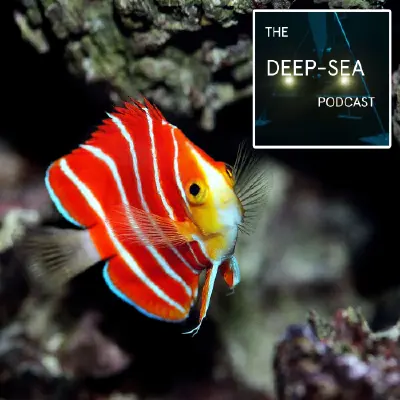
In this episode…
Sorry the episode is a little late…. But it’s a bumper!
Alan has been checking out hypercars while sharks have been checking out Thom. In the news, we have art, anglerfish, squid and sea spiders. Then an orafish turns up, and we are all doomed.
In this month's episode, we discuss mesophotic reefs, the deeper extents of coral reefs that have been overlooked in the past. It’s a wild ride that leads us to homemade hyperbaric chambers, the aquarium trade and the world’s most expensive fish. Strap in for a rollercoaster ride as we dive to the limits of scuba.
Support the show
The podcast is only possible with your help. Here’s a link to our page on how to support us, from the free options to becoming a patron of the show. We want to say a huge thank you to those patrons who have already pledged to support us:
Smorgindorg
Check out our podcast merch here!
Feel free to get in touch with us with questions or your own tales from the high seas on:
podcast@deepseapod.com
We’d love to actually play your voice so feel free to record a short audio note!
Thanks again for tuning in; we’ll deep-see you next time!
Find out more
at deepseapod.com
Social media
BlueSky: @deepseapod.com
Twitter: @DeepSeaPod
Instagram: @deepsea_podcast
Keep up with the team on social media
Twitter:
Alan - @Hadalbloke
Thom - @ThomLinley
Instagram:
Thom - @thom.linley
Inkfish - @inkfishexpeditions
BlueSky:
Thom @thomaslinley.com
Reference list
Discord Updates
Join our Patreon to get access to the Discord
The New Zealand wandering anemone
The supergiant amphipod wiki page
News
Under the Sea Exhibit
Anglerfish radiation paper
Alexe's website
Oarfish are turning up everywhere
Andrew and Thom’s oarfish blog
DOSI new podcast - Think Deep!
Marine Snow Carbon Transport
Methane Powered Sea-Spiders
Ancient Oceans filled with Squid
Interview
Kai’s website
Instagram
Bluesky
Twitter
Mesophotic fish collecting video
Taken by Ghislain Bardout from Under The Pole. The diver is Timothy Bennett, and he was collecting for the Australian Museum Research Expedition.
One of Kai’s recent mesophotic reef papers
The hyperbaric chamber for fishes
The paper where the chamber is described
FishPix
The peppermint Angelfish
Kai’s video of the peppermint angel
Teresa’s project
Her recent paper on black corals
Coffee with Andrew
Ribbonfish larvae paper
Glossary
BRUV - Baited Remote Underwater Video
Closed-circuit rebreather - An advanced form of scuba where your breath is recycled, and you don’t make any bubbles
Husbandry - Keeping an animal in captivity
IPFC - Indo-Pacific Fish Conference
Marine Snow - The particles that rain down to the seabed; poop, dead things, cast shells
Mesophotic Reef - The deeper extent of coral reefs where the light is reduced
Rebreather - See Closed-circuit rebreather
ROV - Remotely Operated Vehicle
Systematics - The structure and relationships between species
Credits
Theme: Hadal Zone Express by Märvel
Logo image: The peppermint angel by Yi-Kai Tea

Jun 30, 2025
Earth911 Podcast: Implasticfree.com's Simona Paganetto on Building a Plastic-Free Marketplace One Brand at a Time
Earth911.com's Sustainability In Your Ear ❭
What if the solution to our plastics crisis isn't just about individual behavior change but building entirely new marketplaces that make plastic-free living accessible and transparent? On this episode of Earth911's Sustainability In Your Ear, discover the grassroots approach with Simona Paganetto, founder of Implasticfree.com, who has transformed her search for plastic alternatives into a curated directory of nearly 150 vetted brands committed to ditching plastic packaging and single-use products. What began as Simona's journey toward plastic-free living has evolved into a store that bridges the gap between conscious consumers and genuinely sustainable brands. Her rigorous vetting processes and careful curation has made Implasticfree.com a trusted resource for shoppers navigating the confusing landscape of sustainability claims and greenwashing.Simona's approach differs from typical environmental activism—she's learning digital marketing while building her mission-driven venture, creating a refreshingly authentic take on environmental entrepreneurship that prioritizes transparency and continuous learning over having all the answers. We also explore the psychological barriers people face when trying to go plastic-free, from the perception that sustainable products are always more expensive to the overwhelming nature of changing deeply ingrained habits. You can explore curated plastic-free alternatives at implasticfree.com.Subscribe to Sustainability In Your Ear on iTunesFollow Sustainability In Your Ear on Spreaker, iHeartRadio, or YouTube

Fresh off a 2-hour interview with the FT, Dale stops in for a chat before he takes his big-arse-battery to Glasto. This week, Trump's got a potty mouth, Ecotricity's customer service is top of the pile, and apparently a bit of paint now counts as terrorism...
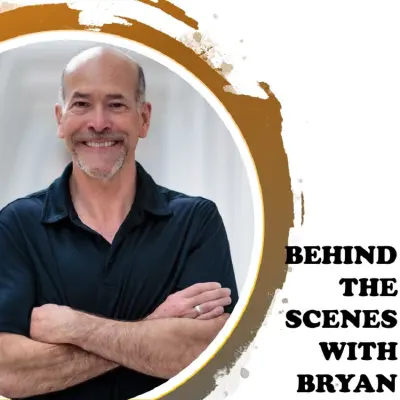
In this episode I test Chat GPT on its knowledge of the current state of tailings management.
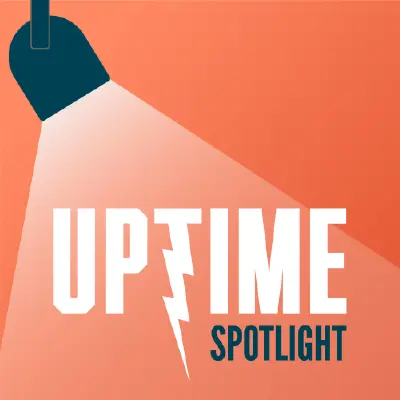
Antoine Larvol, CTO of Windar Photonics, discusses how their continuous wave LiDAR technology enhances wind turbine performance through optimization and monitoring, increasing AEP and reducing loads, particularly for legacy turbines.
Sign up now for Uptime Tech News, our weekly email update on all things wind technology. This episode is sponsored by Weather Guard Lightning Tech. Learn more about Weather Guard's StrikeTape Wind Turbine LPS retrofit. Follow the show on Facebook, YouTube, Twitter, Linkedin and visit Weather Guard on the web. And subscribe to Rosemary Barnes' YouTube channel here. Have a question we can answer on the show? Email us!
Welcome to Uptime Spotlight, shining light on wind. Energy's brightest innovators. This is the Progress Powering Tomorrow.
Alright, we're here in Phoenix, a CP, clean power, uh, 2025. So I'm, uh. Sitting with Antoine Larvol from, he's a CTO from Windar. Yep. Welcome to the show. Thank you. Uh, we've been, uh, happy enough to get actually to sit inside your booth where it's nice and qui. Quiet and isn't it nice? Yeah. We got glass behind the camera here and people are walking by, walking by, walking by.
Um, so this morning, uh, we, we talked yesterday a little bit about what wind photonics does. Yep. Of course, from our, uh, some of our other friends around the world. We've heard about some, some campaigns you've done in the United States, which have been. Really successful. So yeah, congrat good. Congratulations there.
Yeah, thank you. Um, and, and as, as a lot of things in the wind industry, Windar, photonics based in Denmark.
Antoine Larvol: Yeah.
Joel Saxum: So you guys, uh, bring it, bring in that Danish [00:01:00]technology. We're here, of course, bringing it to the US market at a CP, the American Clean Power Show. So welcome to the States. Thank you. Um, it's a short one, but a
Antoine Larvol: good one.
Yeah, yeah, yeah,
Joel Saxum: exactly. So, so I want to talk a little bit about what Windar photonics and, and it is a LIDAR based sensor, correct?
Antoine Larvol: Yes. Right. So. We do continuous wave base, uh, lidar. Yep. Uh, main product is a two beam version mm-hmm. Where you shoot, uh, at 80 meters in front of the turbine. Mm-hmm. And you basically alternate from one beam to the other.
And measure wind speed and direction upfront, the, the turbine among others.
Joel Saxum: Right. So we're talking about, uh, if you, if you're in the wind industry, you've ever seen these lidar units that are put actually, you're the cell mounted, correct? Yes. Okay. Yeah. So, and, and, uh, we're looking more on the optimization, retrofit monitoring side of things.
Yeah,
Antoine Larvol: exactly. So we've never been a resource assessment company. Yeah. Or we don't look at power curve verification and stuff like that. We really [00:02:00] focus on. Retrofitting those, existing turbines. And then add value to In terms of information to, the customer, Yeah. With the mon monitoring side of things.
Yeah. And, from day one, that's been the goal of Windar Making something cheap, robust. That can just stay there and measure with good availability, wind speed, and direction coming to your turbine.
Joel Saxum: I love it. so we wanna squeeze as much as we can outta these turbines. And you guys are increasing AEP that's, the name of the game.
Yeah. Right.
Increasing AEP below rated. and then above rated you decrease loads. Increase uptime. and we basically do that by going on the line of the wind direction. that you then feed to the turbine controller and then we can actually adjust the, yaw position of the turbine according to our information.
So I want to talk a little bit, we, we chatted a little bit offline about the, technology behind it, right? Yep. And people in the wind industry, if you're around the wind industry around resourcing or you're around optimization, you've heard [00:03:00] lidar. Yep. You know what I mean? And,

Jun 24, 2025
***Special archive - #204 Nick Myers, Co-Founder and CEO of Phoenix Tailings
Bigger Than Us ❭
Nick Myers is the co-founder and CEO of Phoenix Tailings, a company building a sustainable future by refining metals from mining waste with zero direct carbon emissions or toxic byproducts.Before founding Phoenix Tailings, Nick worked in Venture Capital at Techstars and was the Director of Finance and Partnerships for Meenta, a medical diagnostic testing startup. He also co-founded Huntington Angels, a strategic angel investment group where he now serves as the lead outside adviser.Nick was also a founding member of Tengu, an early Web3 startup that created one of the first stable coins. At Tengu, Nick briefed the IMF about decentralized finance and cryptocurrencies' impact on the world economy.Nick has a Bachelor's Degree from Saint Michael's College, where he was a starting pitcher for the college's baseball team. He also has an MBA from Northeastern University.https://www.phoenixtailings.com/https://nexuspmg.com/
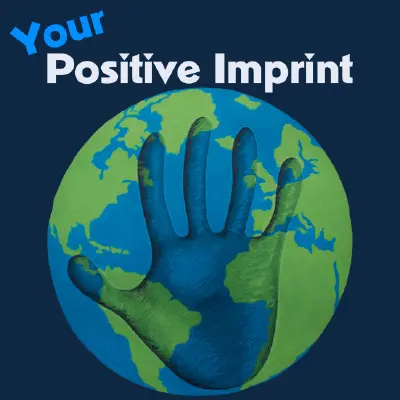
Jun 23, 2025
Negative work culture? Tips for fostering positivity. Gerald J. Leonard
Your Positive Imprint ❭
The bass is essential to the orchestra just as strong leadership is crucial for a clear organizational vision and positive culture. Bass player and project management expert, Gerald J. Leonard highlights that vision shapes values and those values should be embedded in practice. Gerald explains how.

